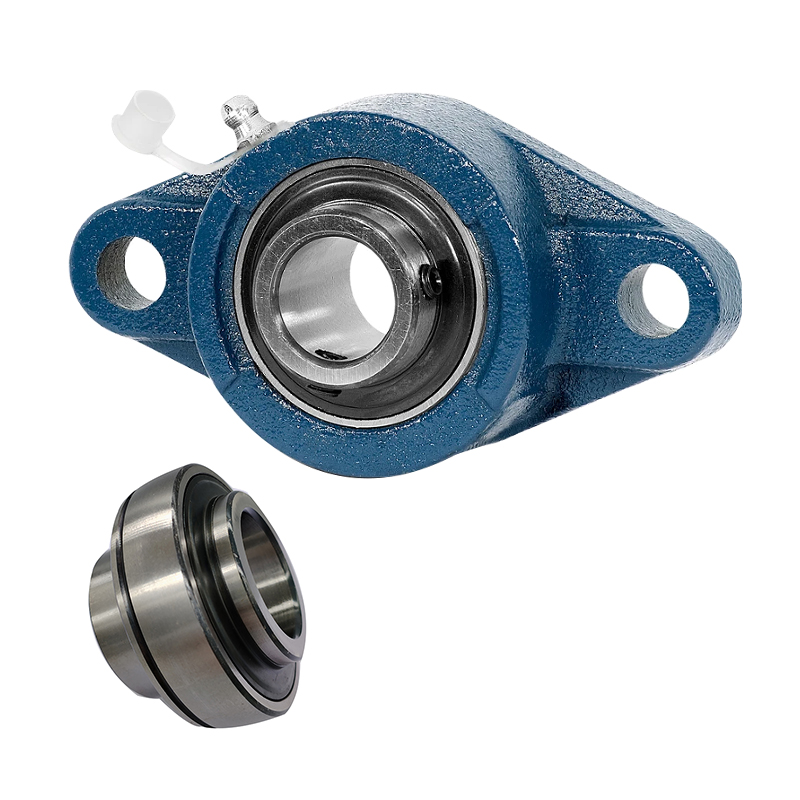Apr . 28, 2024 14:28 Back to list
Causes For Premature Bearing Failure And How to Prevent It
Premature bearing failure is a major cause of motor downtime and costly repairs. It’s important to acknowledge that, like any mechanical component, motor bearings will eventually fail. However, understanding the root causes of bearing damage allows you to optimize their lifespan and performance.
WHAT CAUSES BEARING FAILURE?
There are several factors that cause damage to motor bearings. Here are some of the most common reasons for premature bearing failure:
1. POOR LUBRICATION
Proper lubrication is critical to extending the lifespan of a motor bearing. It acts as a protective film, minimizing friction and wear by distributing the load more evenly across the motors’ components. This not only reduces stress but also helps prevent overheating and contamination.
2. FATIGUE
Motor bearings are susceptible to metal fatigue, also known as spalling, caused by repeated stress. Exceeding the bearing’s designed load capacity significantly accelerates this fatigue process. Continuous overloading weakens the bearing material, ultimately leading to pitting or flaking, and consequently, premature failure.
3. IMPROPER INSTALLATION
Proper installation and meticulous alignment are paramount for maximizing motor bearing lifespan and performance. Misalignments induce excessive vibration and uneven loading, accelerating bearing wear. Improper handling or unsuitable tools during installation can directly damage the bearing or compromise its alignment, leading to premature failure.
4. ELECTRICAL DAMAGE
Variable frequency drives (VFD) used on AC and DC motors produce induced electrical currents on the motor shaft. This current seeks the path of least resistance to ground, which is typically through the motor bearings. When the current passes through the bearings, electrical arcs take place, leading to fluting, pitting, and bearing damage. The fluted or damaged bearing surface causes noise, vibration, and premature bearing failure.
PREVENTING BEARING DAMAGE
Motor bearings are critical components for smooth and reliable operation of your equipment. However, they are susceptible to various factors that can lead to premature failure, resulting in costly repairs and downtime. To address these concerns, implementing a comprehensive prevention strategy is crucial.
Preventative Maintenance:
- Employ the correct lubricant type and maintain adequate levels based on operating conditions and manufacturer recommendations. This reduces friction and wear, optimizing bearing life.
- Precise Alignment: Use precision tools and techniques to ensure precise alignment between the motor shaft and the bearing housing. Misalignment induces excessive vibration and uneven loading, accelerating wear and failure.
- Careful Handling: Utilize appropriate tools and techniques to prevent damage during installation and removal.
- Damage Inspection: Inspect bearings meticulously before installation, replacing any compromised units.
Operational Considerations:
- Overload Prevention: Select bearings with load capacities exceeding the expected operating loads on the motor. Overloading significantly reduces bearing life due to increased stress and fatigue.
- Condition Monitoring: Schedule regular inspections and employ vibration analysis techniques to identify early signs of wear or damage, allowing for proactive maintenance and preventing major failures.
Addressing VFD-Induced Bearing Damage:
- Consider adopting a shaft grounding solution. Helwig Carbon uses proven silver graphite brush technology in a variety of bearing protection kits (BPK) for motor shaft grounding. Our shaft grounding systems effectively divert induced electrical currents away from the bearings, protecting them from damage and failure. Our BPK™ ‘s are economical, easy to install, and offer the industry’s best shaft grounding performance.
PREVENTING BEARING FAILURE IN A CONTAMINATED OR HARSH ENVIRONMENT
Helwig’s shaft grounding systems, BPKs, are specifically designed for contaminated environments. Our silver graphite brushes have a cleaning property that when combined with a constant force spring, provide a contaminant-free brush track for optimal shaft grounding. This maintenance-free solution is ideal for environments with excess grease, pickling lines, or volatiles in the air.
Latest news
-
The Science Behind Ceramic Bearings
NewsAug.08,2025
-
The Power of Deep Groove Bearings in Modern Industry
NewsAug.08,2025
-
The Evolution of Spherical Bearings
NewsAug.08,2025
-
Silicon Nitride Bearings in Aerospace
NewsAug.08,2025
-
Innovations in Spherical Plain Bearing Materials
NewsAug.08,2025
-
Advancements in Spherical Roller Bearing Design
NewsAug.08,2025
